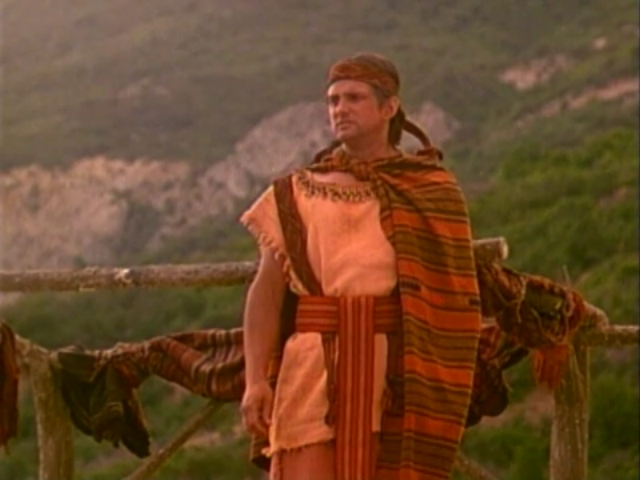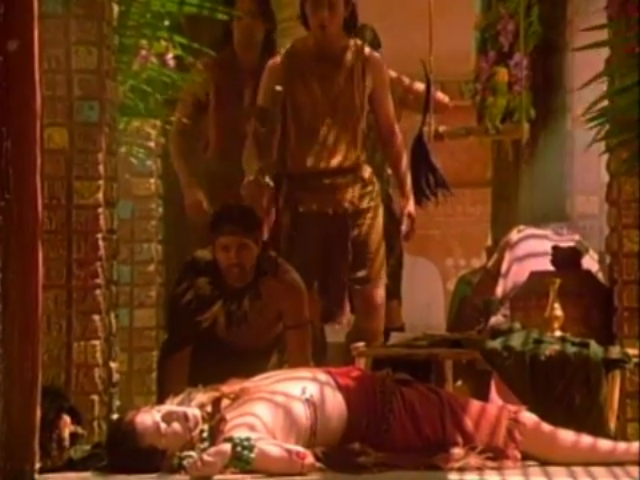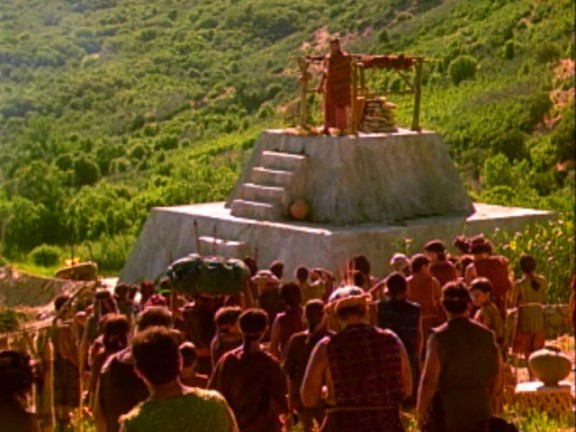To accompany your Come Follow Me study for September 2-8
In addition to your reading, you may enjoy watching the following related videos:
You will also enjoy consulting the related commentary from the Institute of Religion Book of Mormon Student Manual:
- Chapter 36: Helaman 5–9 (churchofjesuschrist.org)
- Chapter 37: Helaman 10–12 (churchofjesuschrist.org)
If you would like a Kahoot game related to this material which you could use for personal study or use with your family or your class, click here: https://create.kahoot.it/share/helaman-7-12/74224fc0-976f-4437-8fd7-3b6878324d4b . To use it with a group, after clicking on this link, you will need to log into Kahoot, creating a free account if you have not done so previously, then click on the blue “Start” button. Some of the Kahoot questions may presuppose that the player has read through the suggested answers to the following Points to Ponder and at least has browsed the Institute student manual as well.
Points to Ponder in Helaman 7-12
Questions on Helaman 7
1. How did Nephi’s assessment of the “good old days” (7:7-9) compare to that of Jacob, who actually experienced them? (Jacob 7:26)? What lesson can we learn from this?
2. Why did Nephi prophesy “upon a tower … which was by the highway which led to the chief market”? (7:10.) Aren’t we encouraged to pray in more private places and not to be seen of men?

Questions on Helaman 8
3. If the law of the land couldn’t prosecute Korihor for his false teachings (Alma 30:7‑12), why could the authorities later undertake to try Nephi for his teaching? (Hel. 8:1)
4. What event in Nephite history had the speakers in 8:6 evidently forgotten?
Questions on chapter 9
5. If the people were really so wicked at this time, why would they be fasting in verse 10?
6. Why were the people in general not convinced of Nephi’s divine calling after he successfully prophesied that a delegation would find the chief judge lying dead?

7. Why was Nephi’s next inspired prediction more successful in convincing the Nephites of his divine calling?
Questions on Chapter 10
8. What would be funny about verses 9:39 through 10:1, if it weren’t so tragic?
9. If the people were now convinced that Nephi was either a prophet or a god, why didn’t they do what he said?
10. Why was Nephi told that all his prayers would be answered affirmatively, whereas most of us get only part of what we ask for?
Questions on Chapter 11
11. Since the Nephites repented so readily and completely when the Lord sent a famine upon them, wouldn’t it have made sense to send the famine earlier? Wouldn’t such a famine serve a useful purpose today? (See Hel. 11.) What does 10:17 have to do with this?
12. After a couple of years of complete peace among the Nephites in the 77th and 78th year of the reign of the judges, what surprisingly and ironically first led to a renewal of conflict? How was the conflict terminated? (11:22‑23)
13. If Nephi and Lehi had “many revelations daily,” (11:23) why isn’t the Book of Mormon longer than it is? Do current prophets have such frequent divine communication?
14. How many changes of direction from wickedness to righteousness or vice‑versa can you count in Helaman 11 alone?
Questions on Chapter 12
15. Is 12:1‑6 an exaggeration or an accurate depiction of mankind’s condition?
16. What, in your opinion, are the other most important lessons or doctrinal teachings found in these chapters, not alluded to in the preceding questions?
Possible Answers to Points to Ponder in Helaman 7-12
Questions on Helaman 7
1. How did Nephi’s assessment of the “good old days” (7:7-9) compare to that of Jacob, who actually experienced them? (Jacob 7:26)? What lesson can we learn from this?
Jacob, the first Nephi’s brother, seems to have had a dim view toward his own time (Jacob 7:26), and Nephi lamented that his brothers were anything but “easy to be entreated.” (1 Ne. 17:45.) Perhaps like some of us, the Nephi of Helaman 7 had an overly-glamorized view of the past. We may want to remember to look on the bright side of things and not focus on the negative.
2. Why did Nephi prophesy “upon a tower … which was by the highway which led to the chief market”? (7:10.) Aren’t we encouraged to pray in more private places and not to be seen of men?
See the video at https://www.youtube.com/watch?v=SHiiCaz8MLU for some interesting thoughts on the subject.
Questions on Helaman 8
3. If the law of the land couldn’t prosecute Korihor for his false teachings (Alma 30:7‑12), why could the authorities later undertake to try Nephi for his teaching? (Hel. 8:1)
The authorities in Helaman 8 have corrupted and misapplied the law.
4. What event in Nephite history had the speakers in 8:6 evidently forgotten?
The destruction of Ammonihah, previously considered invincible, in just one day’s time back in Alma 16.
Questions on chapter 9
5. If the people were really so wicked at this time, why would they be fasting in verse 10?
They may have still had the external trappings of religion, but they had lost the spirit of it.
6. Why were the people in general not convinced of Nephi’s divine calling after he successfully prophesied that a delegation would find the chief judge lying dead?
They preferred to believe that Nephi was in on the crime rather than to believe that Nephi was a prophet. If they admitted he was a prophet, they’d have an implied obligation to change their behavior.
7. Why was Nephi’s next inspired prediction more successful in convincing the Nephites of his divine calling?
He predicted Seantum’s reaction so specifically that the people could no longer deny that Nephi operated by some divine power. This did little to make them want to follow his teachings, however.
Questions on Chapter 10
8. What would be funny about verses 9:39 through 10:1, if it weren’t so tragic?
The Nephites were content to argue among themselves as to whether Nephi was a god or a prophet, but neither party was interested in following Nephi himself, whom they left standing alone while they went off to argue with each other.
9. If the people were now convinced that Nephi was either a prophet or a god, why didn’t they do what he said?
Because they desired the pleasures of sin, not what Nephi was offering, even though they knew he had divine power behind him. A merely intellectual conviction is far different from a spiritual conversion.
10. Why was Nephi told that all his prayers would be answered affirmatively, whereas most of us get only part of what we ask for?
The Lord knew that Nephi would ask only for that which was right. When we get to that point, perhaps the Lord can give us similar blessings.
Questions on Chapter 11
11. Since the Nephites repented so readily and completely when the Lord sent a famine upon them, wouldn’t it have made sense to send the famine earlier? Wouldn’t such a famine serve a useful purpose today? (See Hel. 11.) What does 10:17 have to do with this?
The Lord seems not to send famines and similar “strong-armed” measures until people have first had a chance to hear the gospel and accept it without so much coercion. It was only after Nephi had declared the word “among all the people” that the Lord could send the famine of Helaman 11.
12. After a couple of years of complete peace among the Nephites in the 77th and 78th year of the reign of the judges, what surprisingly and ironically first led to a renewal of conflict? How was the conflict terminated? (11:22‑23)
They began to fight over religious doctrine! The many revelations which Nephi and Lehi had daily enabled them to resolve the crisis.
13. If Nephi and Lehi had “many revelations daily,” (11:23) why isn’t the Book of Mormon longer than it is? Do current prophets have such frequent divine communication?
Most such revelations did not need to be recorded but were directions specific to that time and place and were acted upon as they came. Certainly, current prophets have similar divine revelation.
14. How many changes of direction from wickedness to righteousness or vice‑versa can you count in Helaman 11 alone?
There seem to be six such reversals in this one chapter:
11:9-21: The people repent because of the famine.
11:22-23: Much strife because of doctrinal differences
11:23: Nephi’s and Lehi’s powerful preaching puts and end to the strife.
11:24-27: The Gadianton band is revived and “great havoc” prevails.
11:34: Great destruction causes people to remember God again.
11:36-37: People forget the Lord again and are ripening for destruction.
Questions on Chapter 12
15. Is 12:1‑6 an exaggeration or an accurate depiction of mankind’s condition?
Mormon’s (or Nephi’s?) lament in 12:1-6 seems a fairly accurate picture of mankind in general, though there are a few happy exceptions.
16. What, in your opinion, are the other most important lessons or doctrinal teachings found in these chapters, not alluded to in the preceding questions?
Your choice. Some of mine might be:
- 7:23: The Lord expects more of those who have greater knowledge and opportunities.
- 7:26: Pride is at the root of virtually all evil.
- 8:15: We are reminded again of the lesson of the brazen serpent of Moses’ day.
- 8:16: All prophets from the beginning have testified of Christ.
- 8:21: We learn here an interesting historical fact that Mulek, the (perhaps infant) son of king Zedekiah, was the sole survivor of his family when the Babylonians destroyed Jerusalem. We learned back in Helaman 6 that Mulek was brought to this land by the Lord. His descendants became the “people of Zarahemla” whom Mosiah discovered after being led out of the land of Nephi.
- 8:24: God provides ample evidence of the truthfulness of His message.
- 10:2-3: Revelation came to Nephi after some deep pondering and mourning.
- 10:4: Nephi’s blessings came in part because of his “unwearyingness” in preaching.
- 10:12: After receiving the Lord’s command to return and preach again to the people, Nephi didn’t even take time to go home first.
- 10:16: The Spirit has power to physically convey an endangered missionary out of the midst of danger.
- 11:6: The Lord’s judgments often occur primarily “in the more wicked parts of the land.”
- 11:17: When the people repented, the Lord was able and willing to end the famine and cause the rain to fall again.
- 12:1: A reminder that God “in his great infinite goodness doth bless and prosper those who put their trust in him.”
- 12:8: Even the dust of the earth obeys the voice of God. Man is the only creation which does not.
- 12:15: The Nephites had a true understanding that the earth revolves around the sun—not vice-versa.
